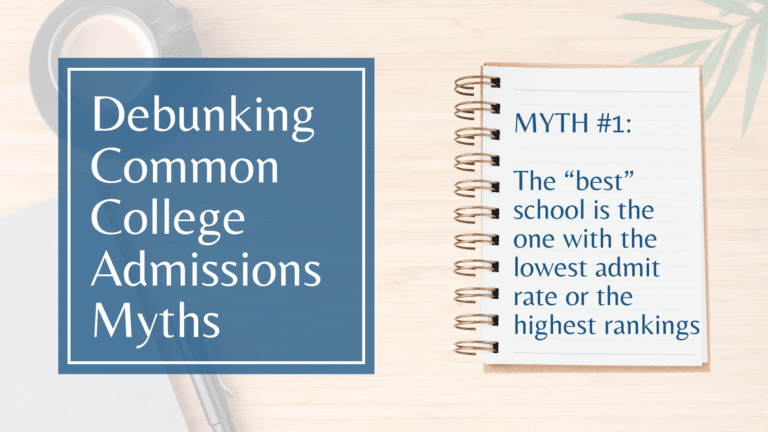Join Our Email List
Get the latest admissions tips and
announcements right in your inbox!
announcements right in your inbox!
We respect your privacy. Unsubscribe at any time.

If Harvard admitted every student who applied, then Harvard wouldn’t be, well, Harvard. The scarcity principle explains the modern frenzy around selective college admissions—when goods are rare or limited, demand far exceeds supply, further fueling demand. It’s the same reason why we, as consumers, are attracted to limited editions and exclusive offers. Some 50-60 colleges and universities garner a disproportionate amount of attention in the media and among applicants, who are so busy clamoring for the same spots that they often overlook the thousands of quality schools that admit the majority of their applicants.
There’s a valid reason why many are so enchanted by the mystique of Ivy League and “Ivy Plus” institutions (e.g., Stanford, MIT, the University of Chicago, and Duke). These universities have historically educated some of the wealthiest and most powerful members of American society. The idea of joining the ranks of the elite is both alluring and logical. Prestigious institutions can and do open doors to the most elusive and exclusive sectors of society, yet attending an elite college is far from the only path to success. Nevertheless, high school students and their parents frequently conflate prestige and quality, believing that a school is “better” largely because it denies most of its applicants. When high schoolers express a desire to attend a “good school,” most are hard-pressed to define the term beyond reputation or rankings.
The inverse relationship between selectivity and desirability creates an admissions paradox. Every applicant wants to be one of the select few to receive an offer of admission while they (either consciously or subconsciously) hope their peers are denied. If “too many” students are admitted, the exact same school somehow becomes less appealing. This sentiment is commonly expressed by students who wonder why they “worked so hard in high school ‘just’ to end up at the same school as X or Y classmate.” In other words, admit me, but deny almost everyone else.
Collectively, we need to change our thinking around college admissions because the “trophy-hunting” mindset amplifies the pressure within an inherently stressful process and causes students and parents to misplace their focus. By design, awards and trophies are reserved for a handful of top performers in any given realm. Yet, college is not a prize, status symbol, or validation of hard work. Theoretically, students should put effort into their high school studies to learn, regardless of whether or where they attend college. College itself is an academic and social experience as well as a significant financial investment. Applying to college should be about fit, a concept that transcends the excitement of an Instagram post or a sweatshirt emblazoned with the college’s name.
The factors that make a school “good” for one student may be unimportant or irrelevant to another. In many respects, the college search is like any other major purchase. We search for houses and cars by identifying our needs and wants and, in most cases, touring or test-driving before taking the plunge. Status and reputation may factor into some purchasing decisions, but they are generally not the primary drivers of big purchases. For example, someone may be able to afford a pair of Louboutins and even love the way they look, but the shoes are probably not a good choice if the person can’t walk in heels.
Just like a marriage is about what comes after the wedding day, the college experience supersedes the excitement of posting on Instagram or wearing the swag. Students should educate themselves about what colleges generally offer and then create a list of the qualities they desire in a college. What makes a school No. 1 in one student’s eyes may be irrelevant to another student and have little or nothing to do with the criteria underlying a publication’s rankings. Students should consider creating their own rankings based on what’s important to them as a learner and individual. These personalized rankings lists will likely be as different as the students themselves. Focusing on finding an academic, social, and financial fit, rather than name brand, published rankings, or a school’s admit rates will ultimately serve students better in the long run.
